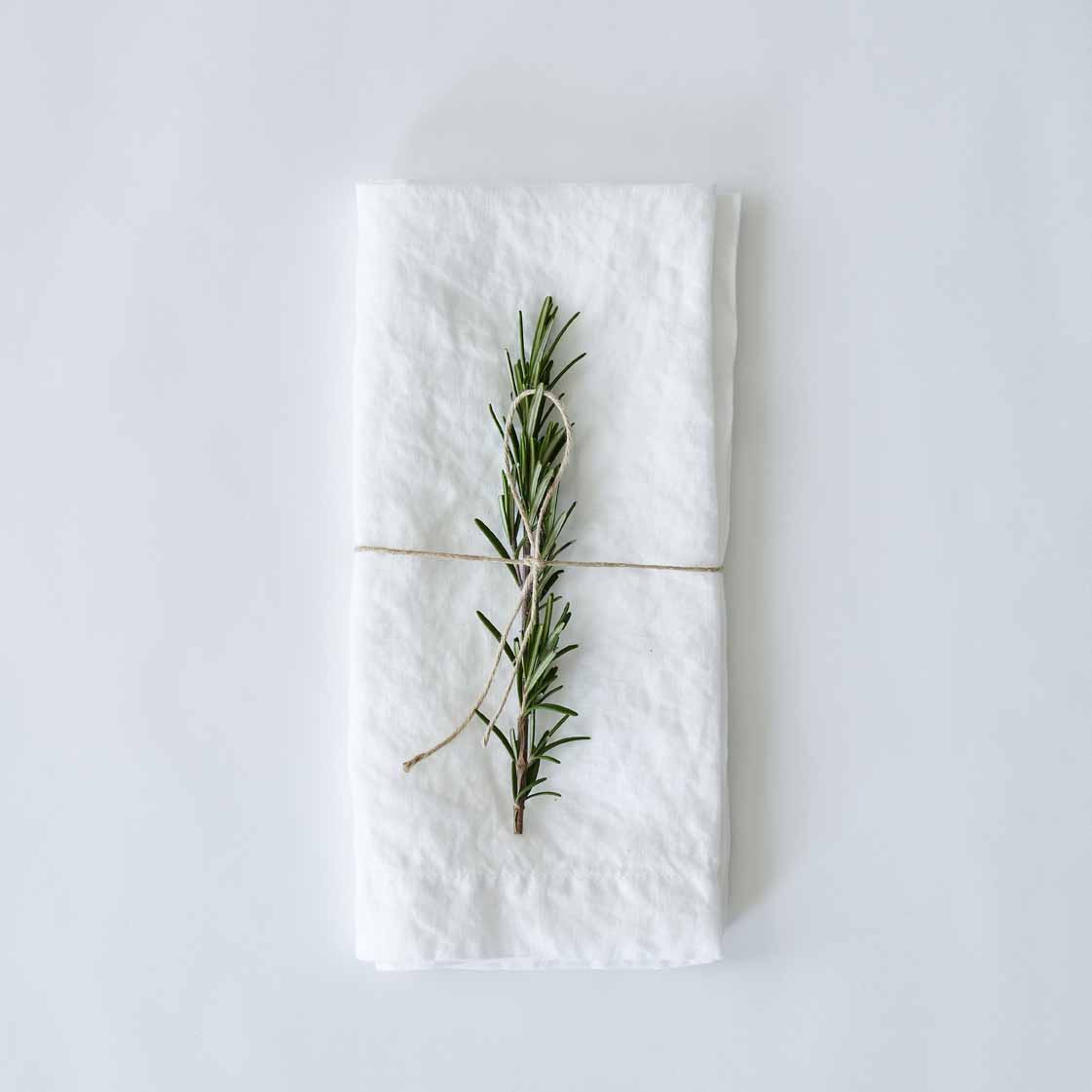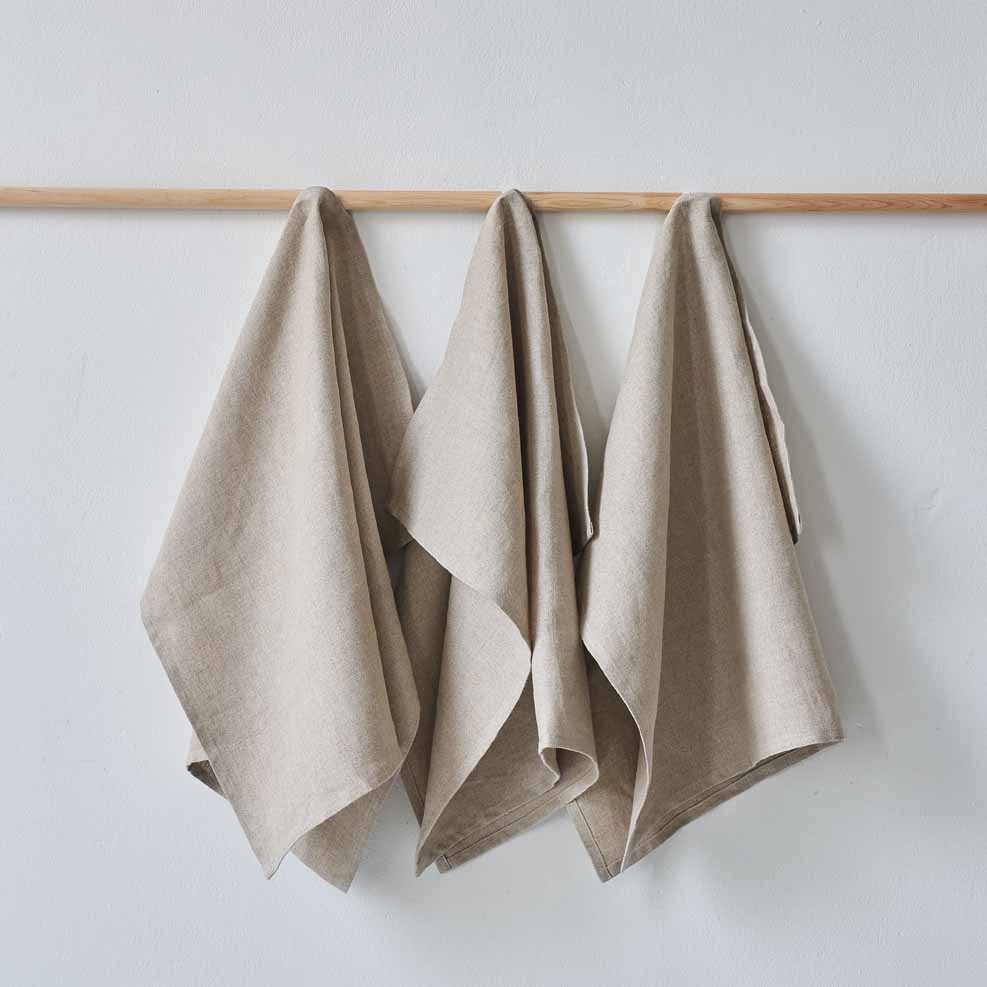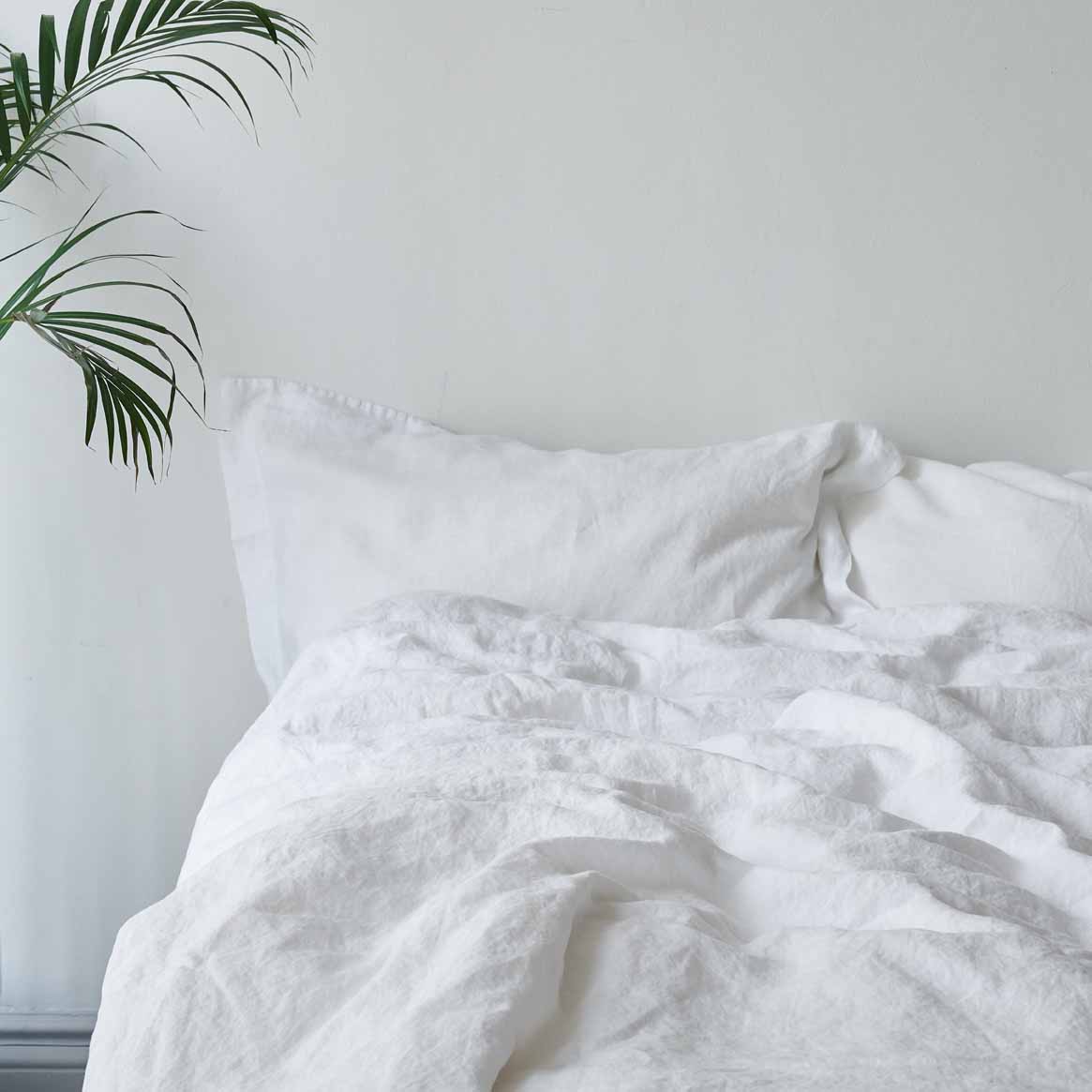ORGANIC LINEN
Linen comes from the flax plant, which is grown primarily in temperate regions, such as Western Europe. It is an extremely strong fibre and is highly absorbent, so is ideal for kitchen textiles, such as tea towels, and for bedding fabric used in hot summer months. Its threads have a slubby appearance, which gives the fabric a lovely character and down-to-earth elegance.
As well as being a beautiful and highly functional fibre, linen is also relatively sustainable. It is grown using rainwater rather than irrigation, and its cultivation uses far fewer pesticides than regular cotton. After harvesting, the flax is ‘retted’ to separate the fibres from the woody stem, and is then ‘scutched’, which involves crushing the fibres between rollers to remove the woody parts. The process is largely mechanical and uses little in the way of chemicals.
Although linen’s sustainability credentials are good, they are not perfect, as synthetic fungicides and herbicides are routinely used. Organic linen, by contrast, comes from flax that is farmed without any use of toxic chemicals at the farming or processing stage, and is therefore a more sustainable option. Organic linen accounts for only 1% of linen produced, so it is a very rare fibre and its price tends to reflect that. By investing in organic linen, you can enjoy the many benefits of linen while knowing that you are supporting a farming process that is at the forefront of sustainability. To learn more about this process, read about our visit to some organic linen farms here.
Ecosophy is proud to be the first brand in the UK to use organic linen in a home textiles collection. To shop the collection, click here.





